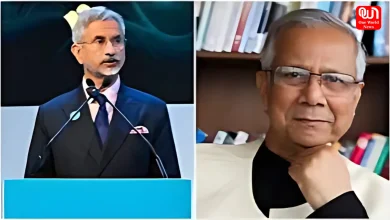What is Mandi Tax and how new farm bills affect it?

Know a great deal about Mandi Tax and the system of farmer’s produce selling
Mandi Tax is technically not a tax but a fee on the purchase and sale of agriculture produce. It is known as Mandi Tax because states and union territories invoke their powers under the constitution to levy it. Mandi Fee or Mandi Tax is levied to get back the expense of running an agricultural wholesale market, APMC, where farmers get good prices from the buyers.
How does the system work?
There are two ways the farmers can sell their produce. Either the farmers can directly sell the produce (Crops, fruits, vegetables and more) to the buyer (retailer, private company) or they can sell it to middlemen also known as Artiyas, who will then sell it to the retailer or a private company. Now, when the farmers sell their products in APMC, where Arthiyas sit, and Arthiyas sell it others, they have to pay a Mandi Tax. The central government has nothing to do with it. All the fee or tax goes directly into state and union territories government’s accounts.
Mandi Tax rates vary states to state and one food grain to another. Punjab levies Mandi fee at 6 per cent in the case of rice, while Delhi government levies only 1 per cent. Similarly, the Mandi fee for pulses vary from 0.6 per cent to 2.5 per cent and on wheat it varies from 1 per cent to 4 per cent.
Experts have often said that there should not be state-specific fee and all fees should be common across the states and union territories in the country. But it is difficult to achieve it considering the diversity of the states.

New Farm Bills
Three new farm bills have been passed in both the Rajya Sabha and the Lok Sabha. They are Essential Commodities (Amendment) Bill, Farmer’s Produce Trade and Commerce (Promotion and Facilitation) Bill, 2020 and the Farmers (Empowerment and Protection) Agreement of Price Assurance and Farm Service Bill, 2020. These bills now just need the President’s signature to become law.
The government has said that the new farm bills will accelerate growth in the agriculture sector through private investment in supply chains and in building infrastructure for farm produce in the Indian and the global market. As per the government, the bills are intended to help small farmers who don’t have means to either to invest in technology to improve the productivity of farms or bargain for their produce to get a better price. The bill on Agri-markets will allow the farmers to sell their produce outside APMC aka Mandis to anyone they want. The government has asserted that the poor farmer will get better prices through competition and cost-cutting on transportation.
This bill could mean that states and union territories will lose Mandi Tax as farmers will sell their produce directly to private buyers or enter into a contract with agri-business firms or large retailers on a pre-agreed price.
Opposition Protest
Harsimrat Kaur Badal, Minister of Food Processing Industries and the only Shiromani Akali Dal representative in the Modi government resigned from her post, in a protest against the bills. Opposition parties including Congress, DMK, TMC, and BSP, opposed the farm bills and said that they were against the interests of small and marginal farmers.
The Farm Bills have not been received well by the farmers across the country, especially in Punjab, Haryana, and Uttar Pradesh. Farmers believe that the new bills will only hurt the farmers and thus they have raised voice against the bills. They have also called for ‘Bharat Band’ on September 25. This strike has been supported by many, including some Punjabi stars.
Celebrities like Ammy Virk, Diljit Dosanjh, Gurnam Bhullar and many others have shared the poster of 25th September “Bharat Band” on their social media profiles. The texts in poster say that everyone is standing with farmers and every person in Punjab is standing solidarity with them. It also says that if anyone thinks that the farm bills are justified, should come and talk to the farmers.
Have a news story, an interesting write-up or simply a suggestion? Write to us at info@oneworldnews.com







